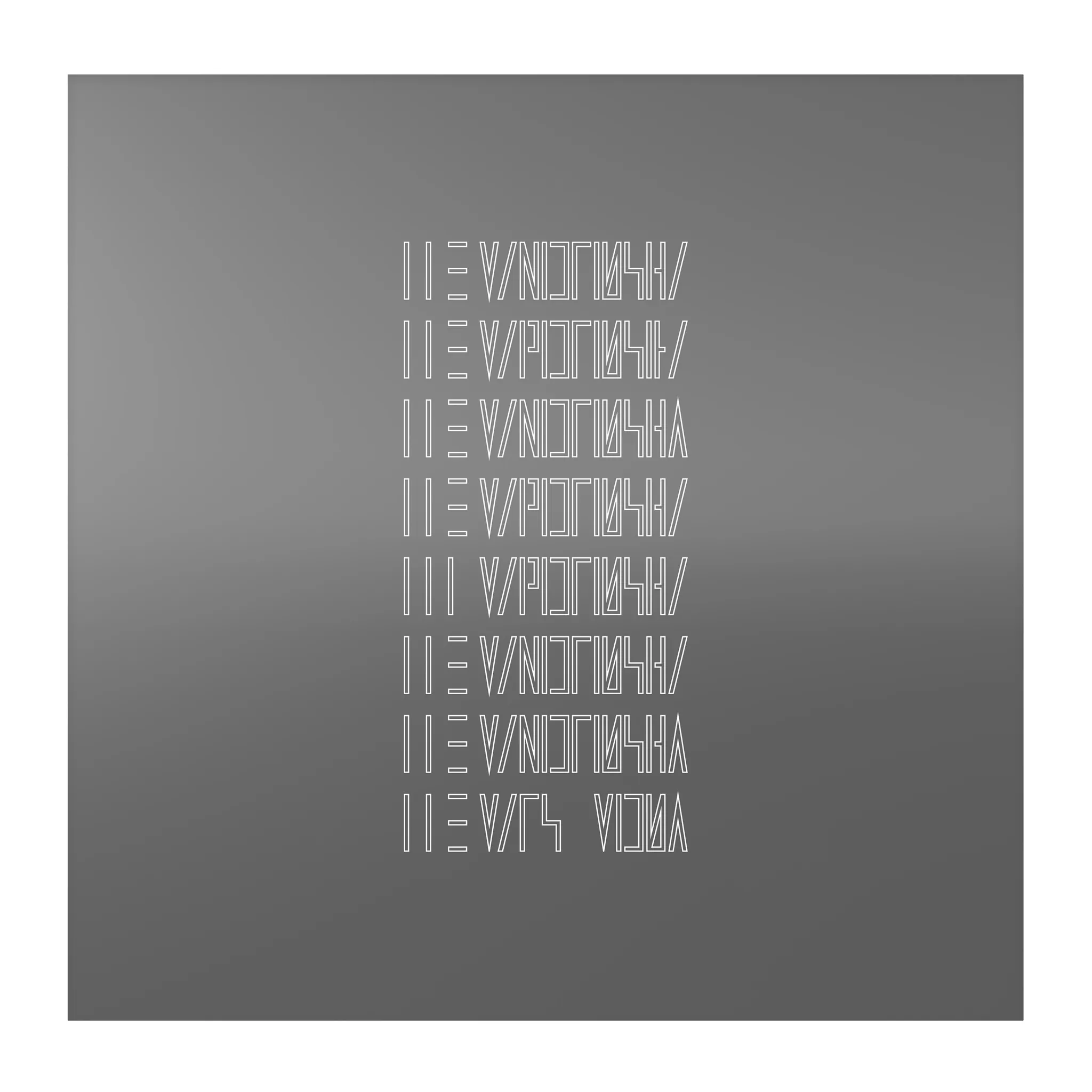For those who thought that Grammy Award-winning prog rock performers The Mars Volta could not get any more experimental after their 2008 release was inspired by a Ouija-board, they may just have gone one step stranger with their latest record ‘Octahedron’ – an “acoustic-inspired” collection of songs lasting only 50.03 minutes. DIY chats with their multi-talented guitarist and songwriter Omar Rodriguez-Lopez about the new record, his forays into film soundtracks and asks him to straighten out those recent rumours of an At The Drive In reunion.
Your new album, ‘Octahedron’, is released in the UK on 22nd June. What, if anything, does the title represent, about the album?
I don’t know yet! I think I’ll know in a couple of years. Usually they’re just striking words or sentences that stick out during a time period. The coincidence is that there are eight songs on the record, we’d been a band for eight years and, at the time, we were an eight-piece. The record’s a year old. It was recorded in August of last year.
And that was 2000 and “8”! There you go! A magic number!
Yeah exactly! [Laughs]
The media has called this record your “acoustic” album. Was it a conscious decision to make it sound more pop by Mars Volta standards, and if so, why?
The conscious effort was to make it the complete opposite of what our records have been and particularly our last record was, which was a batch of some of the most frantic and the most complicated songs that I’d made in a while. This was a natural way to go. It’s an acoustic-inspired record. At the time I was listening to a lot of Nick Drake, Syd Barrett and Leonard Cohen, so I had them in my head and inspiring me. I always knew that where it would end up it would be completely different. The thing is when you’re an acoustic artist, songs are more to the point – it’s just guitars, voice and the basic chord structure, so that was a springboard.
What is it about those particular artists that you find inspiring?
I’m not sure exactly. These are just people that are in your head at the time, so what aspect of their being or their personality that inspires you is an abstract concept. That’s what inspiration is – it might be the way they lived, their voice, something in their eyes – it’s not linear – inspiration is broad and so ethereal.
So ‘lives’ broadly inspire you! As well as their afterlife… You were using an ouija board around the time of your last album, ‘The Bedlam in Goliath’. Did any madness happen this time around during the recording process?
This was the polar opposite experience – it was quite a pleasure to make this album. ‘Bedlam’ was a complete nightmare. Remember that everything that happens in life happens in cycles. ‘Bedlam’ was so chaotic and so torturous, so the next cycle was a break in that – the dam burst open, the water got through and there was tranquility. That album was recorded in the winter and then the spring showed up…
John Frusciante makes another appearance with you as a guitarist on the new album. What does working with John add to the record?
He’s another musician I can utilise in my songs, in that he learns very quickly. When he plays for me, it’s more like a musician executing a part. It’s not collaboration in the sense that he’s writing anything, but he’s learning my parts in a matter of minutes and performing them in a matter of minutes.
That’s amazing! You’re lucky!
It’s really inspiring, and I really learn a lot from the way his mind works and the way he is able to play my music.
You spoke recently about At The Drive In starting to talk again… if you are motivated to make music together again at some point, should The Mars Volta be worried?
No, not at all! You have to understand that it goes back to the media taking things out of context. What I said during that interview is that we’re all friends again. There was a lot of shit talking over the years between those guys and us. We’re in our thirties now, and that was ten years ago. You don’t want to have those things karmically going around, so you just bury the hatchet and say “It’s cool”. All I said is that we had a great time together. But then the media say “Oh they’re speaking again… it must mean they’re thinking about reuniting to play music”. It would be like asking you if you were thinking about getting back together with your first boyfriend! I’m sure you learned a lot from him, and you grew up together and you discovered a lot of things about yourself and about the way that relationships work…
… but you probably don’t want to go back to him and revisit the past…
Yeah, you’ve come so far from that, so you might bury the hatchet and not hold a grudge, but you certainly don’t want to open that can of worms and go backwards. It’s something that’s not going to happen.
Speaking of going backwards, you’re in the process of producing a documentary of the entire Mars Volta history. What has this made you realise about where you are now and where you want to go with this band?
The one thing it’s told me is that there’s no telling where it’s going to go. I see myself when I first started the band, I hear my ideas and my aspirations and my perspective of the possibilities then is so different to what they are now. At the time, I literally thought we’d be this small band, touring clubs forever, and I constantly say in the interviews back then that that was so exciting to me.
And then, this year, you win a Grammy…
Yeah, exactly! I see it in every aspect of my being that I would have never had the foresight to see that we’d be on TV, win Grammies, and play 10,000 seat venues, and all the crazy stuff that’s happened along the way. I see such wonderful innocence along the way. It reminds me that everything is possible even when you’re not asking for it.
Indeed. One of your latest projects is collaborating with Hans Zimmer on the soundtrack for a film ‘The Burning Plain’ starring Charlize Theron and Kim Basinger. What was that experience like?
That’s the second film I’ve scored for Guillermo Arriaga [director] and it’s a very interesting process because it’s a humbling experience that I need in my life, at least once a year. It’s a situation where I’m not the boss. Mars Volta is my baby, it’s my group, and I make all the decisions, and I don’t have anyone telling me what to do. With movies, I go from that to being literally directed – being told, “No! That doesn’t work!” “No… that doesn’t sound good!” or “We need something more like this.” It’s being part of a collective in that sense and not being at the top of the pyramid. It helps me with my skills as a leader in this band and my understanding of where people are coming from, which helps me in being more productive.
Are there any drawbacks to being “directed”?
The frustration I found along the way with making films is that they don’t know what they want. They know what they don’t want! There are some films where I have made forty or fifty songs for them, and they’ve used seven! So I have spare songs in the process of trying to work out what the hell it is that they want!
You have cited “film” as an influence on your music with The Mars Volta. It seems to work both ways. Take David Lynch, who I know you’re a fan of – he relies on music for some of his most pivotal moments – I’m thinking of Blue Velvet and Wild At Heart in particular. How then does “cinema” infiltrate into your music and songwriting?
Cinema is the biggest factor in songwriting for me and it is the biggest influence. The reason is that it’s such a huge medium that incorporates everything – music, photography, the moving image, people as instruments, the written word, set dress, design, and production. That’s why I don’t listen to music when I’m making music, because, as I told you earlier, influence is the people and the life that they’re living – like their eyes, or the way that they’re conducting an interview! It’s organic. If you’re a musician and you’re making a record, it’s very easy to cross that line between influence and carbon copy. So if I like a Van Der Graaf Generator song, it’s very easy to find the template of the song – it’s key, time signature – and replicate it without even meaning to! So you watch a film and go “Oh My God! I love that character!” Or “I love that main character in Fellini’s ‘Satyricon’ – how can I make a song that makes me feel the way that character makes me feel?” Or “How can I write a song that makes me feel the same way that the rape scene in ‘Irreversible’ makes me feel?” I absolutely hate that scene – and it makes me feel completely uncomfortable and nauseous, so I think about how I can create the same atmosphere. Then you’re really being inspired, and you have a lot of work to do because it’s a transference of energy is happening.
So are you saying that you have transferred something Lynchian into your music then?
Oh definitely. I love all of his material. It definitely has infiltrated into my work. He’s one of my favourite directors. What definitely filters in is his sense of unresolved issues. You can watch one of his films and your hand is not held throughout the whole fucking thing! You have to have your own answers to some of the questions in the film. There are some characters that go nowhere and other things that are never answered. There’s an amazing beauty and quality in that.
Final question, if you could choose any film or genre, what would The Mars Volta’s latest epic ‘Octahedron’ soundtrack perfectly?
Oh man! Fuck – that’s a good one! My wildest dream is that someone like Takashi Miike [Japanese director] would find it fitting to use this music in one of his films!
That may be wild, but as you say, “everything is possible” Omar! Thank you very much.
Read More
Les Eurockéennes: Day One
The crowd is merry, but not aggressive nor vomiting, and yet still nobody's pissing in the bushes.
30th June 2012, 1:44pm
The Mars Volta To Play UK Show In July
The band are returning to the UK in support of their latest album 'Noctourniquet' which was released back in March.
22nd May 2012, 11:38am
Watch: The Mars Volta Present Track-By-Track Guide To ‘Noctourniquet’
Watch an eleven minute clip which sees Cedric-Bixler Zavala talk at length about their latest effort.
27th April 2012, 9:29am
The Mars Volta - Noctourniquet
4-5 Stars
'Nocturniquet' is amongst the band's best work.
29th March 2012, 4:50pm
Featuring SOFT PLAY, Corinne Bailey Rae, 86TVs, English Teacher and more!

